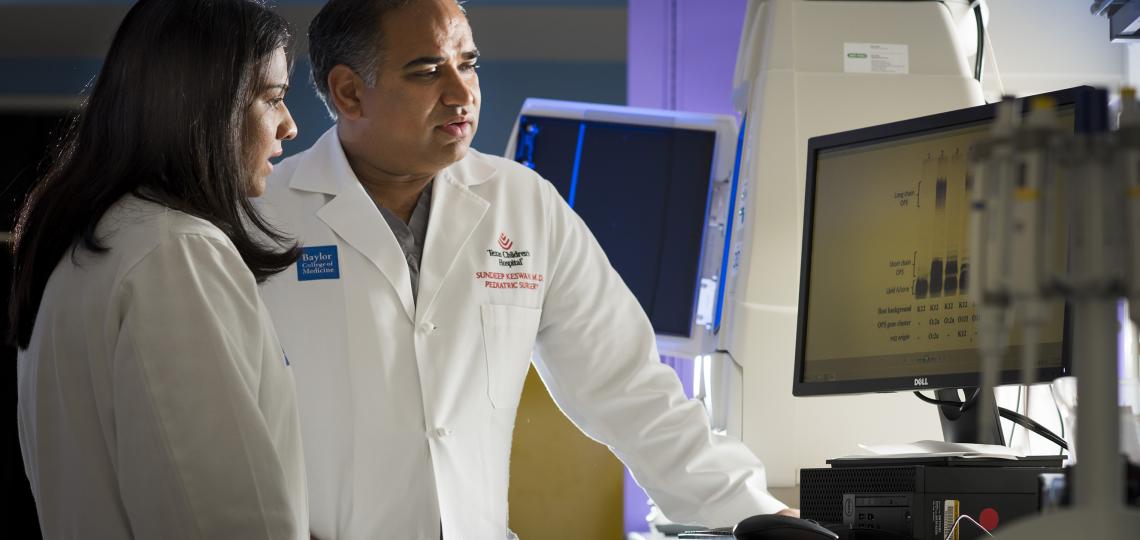Faculty within the Division of Pediatric Surgery conduct most of their research through Texas Children’s Hospital. Clinicians and scientists within the division employ a rich scope of expertise as they seek to solve the serious healthcare concerns of their young patients. Areas of research span the pediatric experience, from birth defects and childhood cancers to community-based outcomes studies. These research initiatives have been recognized and funded by private foundations and the NIH.
Research in Fetal Surgery
Fetal surgery addresses congenital defects while the baby is still in the womb. One of the conditions currently under investigation is congenital diaphragmatic hernia. This defect of the fetal diaphragmatic muscle allows abdominal organs to crowd the lungs and prevents them from developing fully, often causing cardiac problems as well. Researchers within the division are also exploring new ways to target the tissue architectures contributing to the pulmonary hypertension in order to treat this condition more effectively.
Research for Improved Wound Healing
Faculty in the division are working hard to understand the process of wound healing and fibrosis in the Laboratory for Regenerative Tissue Repair, led by division chief Dr. Sundeep Keswani. Dr. Keswani has been awarded a $3 million competitive R01 renewal to continue studying the fascinating molecular mechanisms of regenerative fetal tissue, which has the surprising ability to repair itself without scarring and fibrosis. Discovering the differences in the inflammatory response and gene expression between prenatal and postnatal wound healing has immense potential for translational impact across the lifespan.
Research for Better Cancer Interventions
At Texas Children’s, Dr. Sanjeev Vasudevan contributes to one of the most challenging fields in cancer research with the clinical perspective of an active surgeon. After cloning two novel genes that were found to play critical roles in neuroblastoma tumor growth and chemosensitivity, Dr. Vasudevan is furthering this work through research that focuses on the function and regulation of gene expression pathways with a goal to find less toxic therapeutic agents and improve outcomes in neuroblastoma for his young patients. Dr. Vasudevan also specializes in complex hepatobiliary surgery, which has led him to help develop new intraoperative imaging techniques that enable better visualization of critical structures and tumor margins for better patient outcomes.








 Credit
Credit
